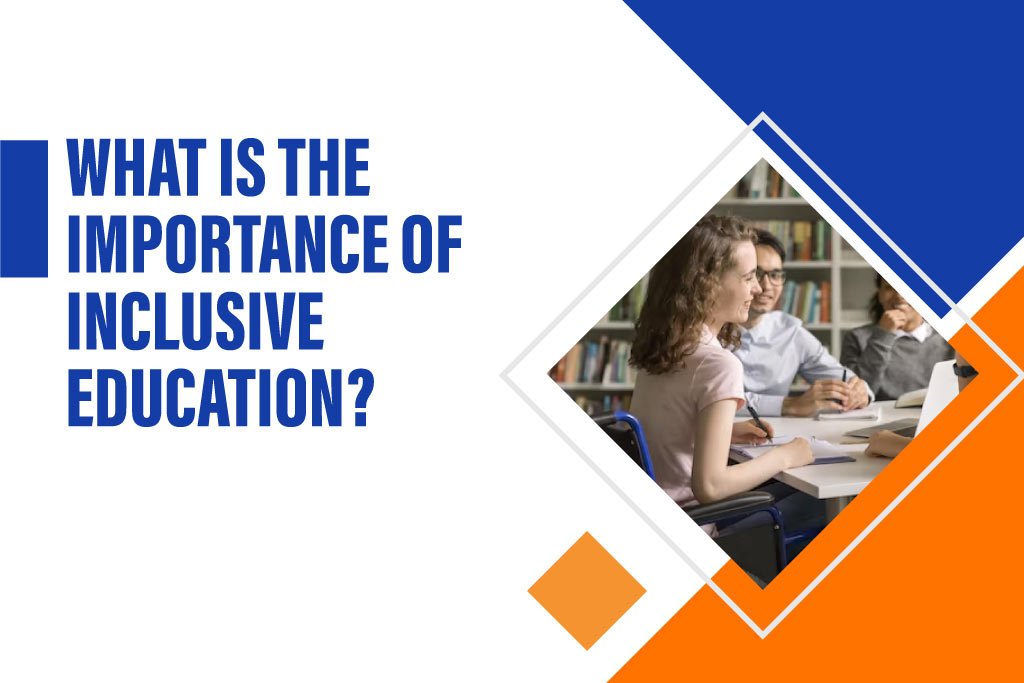
Inclusive education is all about developing and designing our schools, classrooms, courses, and extracurricular activities. So that students of all backgrounds may learn and participate together without any partiality
Inclusive education is providing good quality education for all students by meeting their individual needs in an accepting, respectful, and best supportive way.
The concept and importance of inclusive education in India represent a shift toward fairness and access in education, developing better understanding and positivity. BTech IT colleges in Coimbatore welcome all kinds of students to learn and help them create a brighter future irrespective of their disabilities.
Now let’s dive into the inclusive practices that benefit all students and create a calm learning environment for each student.
What Is Inclusive Education?
Inclusive education refers to a system that celebrates differences in the classroom. It confirms that every student—irrespective of their disabilities, gender, and economic background—has equal access to high-quality education, creating a genuine, inclusive learning environment for each student.
Why Inclusive Education Important?
Inclusive education is a very straightforward form of education. It’s because it only has positive effects on all types of students, educators, and society.
Let’s break it down:
1. Fairness:
Inclusive education is very fair and provides equal opportunities for all students. It eliminates discrimination and partiality, allowing everyone to grow academically and socially.
2. Diverse Views:
When students from multiple backgrounds and abilities learn together, they are exposed to diverse viewpoints. This diversity develops kindness, tolerance, and a deeper understanding of the world.
3. Coming Together:
Inclusive education creates harmony by uniting students, teachers, and families together. Group activities and shared learning experiences pave the way for a supportive community where everyone works towards common goals.
4. Improved Results:
Research shows that inclusive education gives gradually better academic outcomes for all students.
5. Adapting to the Real World:
Inclusive education shows us the major differences in the real world. It prepares students to adapt to different situations, merge with diverse individuals, and get through challenges with an open mind.
Now you must have clearly understood what is inclusive education and its importance in a more precise way.
Barriers to Inclusive Education
- Lack of Resources: Minimal funding, materials, and infrastructure to support different learning needs.
- Inadequate Teacher Training: Limited preparation for educators to effectively teach inclusive classrooms.
- Negative Attitudes: Wrong opinions about disabilities or not accepting differences.
- Strict Curriculum: Traditional teaching methods that fail to support individual learning styles.
- Policy Gaps: Inconsistent implementation and following of inclusive education policies.
Values & Beliefs of Inclusive Education
- Every student, regardless of their abilities, has the right to access and participate in quality education.
- Inclusive education promotes understanding, respect, and acceptance of differences.
- Education systems should be designed to engage all learners through flexible teaching strategies.
- Building partnerships among educators, families, and communities gives a supportive environment for all students.
- Developing the skills and confidence that make students independent.
- Every child deserves the opportunity to reach their full potential, free from discrimination or bias.
Guiding Principles of Inclusive Education
For inclusive education to succeed, it must be grounded in certain fundamental values:
1. Enjoying Differences:
Diversity is always a strong asset and never a weakness. Celebrating differences in schools helps to create a respectful and valuable environment in the classroom.
2. Strategic Teaching:
Effective inclusive education requires teaching strategies that fulfill the varied learning styles and abilities of different sets of students. Differentiated instruction paves the way for every student to receive the personal support they need to succeed.
3. Personalized Support:
Personalized support systems make sure that individual needs are fulfilled. This personalized approach is key to building students’ self-esteem and enhancing their learning experience.
4. Positive Atmosphere:
A supportive and vibrant classroom environment boosts enthusiasm in students and nurtures a love for learning. Teachers play a major role in inducing positivity and togetherness in such classrooms.
5. Teacher Growth:
Inclusive education often calls for continuous professional development. For example, educators at an accredited engineering college in Coimbatore must stay updated with new teaching methods, tools, and strategies to address the diverse needs of students.
Final Thoughts:
The need and importance of inclusive education are increasing nowadays. It transforms lives by providing all students the support and opportunities they deserve, neglecting their abilities or backgrounds.
For those seeking more observations, resources like the Importance of Inclusive Education ppt or The Importance of Inclusive Education pdf can provide in-depth knowledge. Ultimately, what is inclusive education, and its importance lies in its ability to build a world where everyone has a fair chance to succeed. By addressing the above challenges and maintaining core values, inclusive education paves the way for a brighter future for all kinds of students.
